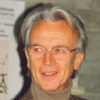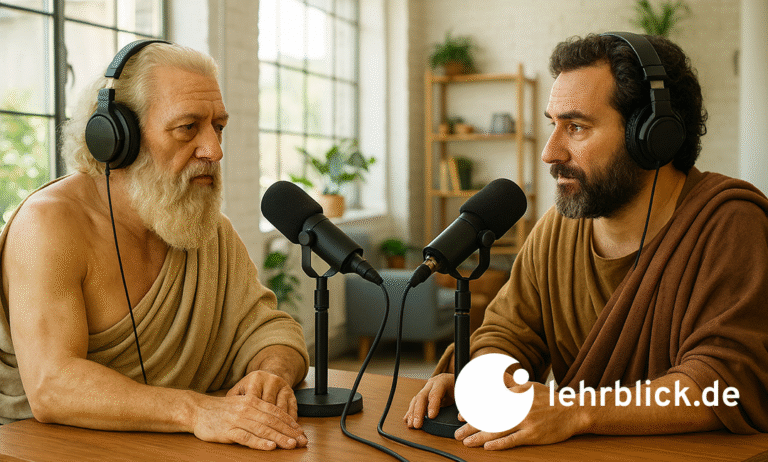Hardly any other course format is as closely associated with higher education as the lecture; and hardly any other format is as controversial. Isa Jahnke referred to the lecture in an interview with the Süddeutschen Zeitung on 24/01/2022 as “an obsolete concept”. Auditoriums are therefore unnecessary. These statements are as undifferentiated as claims of fact, as they are unjustified as recommendations.
In the discussion about new teaching formats, an impression has arisen that traditional lectures are obsolete in the context of a technical-scientific degree programme. This impression is untenable for at least three reasons:
- There is no such thing as “the” lecture, but rather numerous variants, depending on the criteria used to distinguish them (for basics in this regard, see Benner, 2020; for a path-breaking discussion, see Dubs, 2019). The most important criterion are the subject-specific and scientific-didactic quality. The fact that lectures – based on decision-dependent assessment criteria – (can) fail in their aims does not justify the opinion that lectures are an obsolete course format.
- The appropriateness of certain realisation forms of a lecture cannot be assessed without reference to their respective purpose.
- The fear that students are condemned to passivity in lectures is untenable: there is no passive learning. No matter how ingenious the instructor may be and no matter the format academic instruction may take, they cannot replace, force or prevent students’ active learning. However, teachers can certainly support and encourage the intended learning in the addressees. The degree to which this is successful depends not only on the course format, but more fundamentally on the quality of the teaching format and the teaching competency of the respective instructor.
Generating and applying scientific knowledge
Universities are centres of research and academic teaching. Teaching which takes place in universities and colleges is research-related and students participate, depending on the progress of their studies, actively in the generation, consolidation and application of scientific knowledge in order to solve scientific and practical problems. Students progress, so to speak, from thinking and considering alongside their instructors to working with them in practical research.
This speaks to a difference between theory and practice on another level – or more precisely put: between the generation (research) and (professional) application (practice) of scientific knowledge.
Even where the research tradition of a scientific discipline is more closely oriented toward the application of its research results than others (e.g. in medicine, economic sciences, educational research, engineering), students can and should be given the opportunity to get to know and appreciate the intrinsic value of research, entirely independently of its applications or exploitation potential. In research, the focus is on the explanation. In non-scientific (professional) practice, the issue is the shaping of the world- a process which fundamentally depends on the quality of the explanation which forms the basis of promising practice. This is because the (initially) purpose-free and (as yet) application-independent knowledge provides information about the likelihood of whether success corresponding to stated aims can be expected from certain activities (in the wider sense) under certain conditions. However, just as the transmission of this knowledge in a way which promises success demands technical and scientific-didactic competencies on the part of the scientific instructor, the competent application of this knowledge demands its own phases and forms of competency transference – e.g. the clinical training during medical studies or traineeships in legal or pedagogical training.
On the value of practice-oriented teaching formats
Research institutions, therefore, are not tasked with providing methodologically controlled and intersubjectively testable scientific insights. They are tasked with qualifying young people in scientific fields, specifically for the fulfilment of societal functions which require excellent scientific competencies. The academic preparation for professional decision-making competencies demands the successful transfer of foundationally-oriented research knowledge into research-based application knowledge and the generation of research-compatible skills (Neuweg, 2015). This opens up a further problem area for scientific-didactic research and development work, namely the “divide between knowledge and action” which has received considerable attention, both in teaching/learning research (Gruber & Renkl, 2000) and scientific public policy.
Didactic approaches, such as situated learning (Lave & Wenger, 1991), case study-based learning (Kolodner, 2013) or learning from solution examples (Renkl, 2016) justify the empirically-based recommendation to integrate the obtaining of research-oriented (university) and application-oriented (professionally qualifying) knowledge. They therefore rightfully find their place in their own teaching formats (e.g. project seminars), but also in the application-oriented design of (traditional) lectures and seminars.
Most recently, as the interview in the Süddeutschen Zeitung (Spinrad, 2022) mentioned at the start, the flipped classroom is often given as the preferred method for connecting theoretical and application-oriented knowledge. Without a doubt, this method can be implemented in a variety of ways and enriches traditional, proven teaching scenarios, but cannot generally or fundamentally replace them. Aside from problems implementing the concept, success – just like in lectures – depends to a large degree on the quality of the teaching material and the preparation of the instructor (Dubs, 2019).
Lectures as opportunities and motivation to reflect
Lectures most likely (this could be tested empirically) primarily offer significant added value for personality development, particularly the discerning capability of their addressees, when they are provided by researchers who refer back to addressees own (individual) processes and the results of their research.
It is worth mentioning that I have often received the feedback in courses that students who worked through (my) text on the lecture subject did not perceive the lecture to be a repetition but rather an exploration in which they were involved more deeply and fruitfully in reflection than they had been in their reading of the explanations, attentive though they had been in their reading. And in my own studies, lectures were among the high points of my own development – including when they diverged from the results of my won critical thinking. They were milestones in the development of my scientific identify.
Despite the, in many ways justified, demand for application-oriented instruction, those students who are especially interested in the professional-practical application of their knowledge should also get the opportunity to get to know and appreciate the intrinsic value of research, independent of its application and exploitation potential (Heid, 2015), because university studies can and should continue to be more than mere vocational training. Much more, they aim to support the development of students’ competencies so that they are able to structure and cope with challenging professional tasks through the application of scientific methods.
As important as problem and project-related knowledge acquisition is, it is equally essential to gain systematic and overarching contextual knowledge (first), the way lectures have been developed to provide. In addition, lectures in which the presenters stand up for what they are saying in front of a live audience can only be inadequately replaced by TV presentation films, no matter how masterfully (often extraneously so) and elaborately they have been produced. Why are presentations by authors of good publications so often and so quickly booked out? Likely because those who are interested find it important to observe these authors in their thinking and argumentation, and to be able to evaluate the results of that argumentation for themselves and use it for the development of their own competencies. This may even apply when the presenters, as an exception (!), present their writing by simply reading it aloud.
Note: Parts of this post were already published in slightly altered form under the title “Teaching Competency: From the Lecture to Teaching 2.0” in the commemorative volume for the 50th anniversary of the University of Regensburg.
References
Benner, D. (2020). Umriss der allgemeinen Wissenschaftsdidaktik. Beltz-Juventa Verlag.
Dubs, R. (2019). Die Vorlesung der Zukunft. UTB.
Gruber, H. & Renkl, A. (2000). Die Kluft zwischen Wissen und Handeln: Das Problem des trägen Wissens. In G. H. Neuweg (Hrsg), Wissen – Können – Reflexion: ausgewählte Verhältnisbestimmungen (S. 155–174). Studienverlag.
Heid, H. (2015). Bildungsforschung im Kontext gesellschaftlicher Praxis. Zeitschrift für Pädagogik, 61(3), 390–409.
Kolodner, J. L. (2013). Case-Based Learning (Softcover reprint of the original 1st ed. 1993). Springer.
Lave, J. (1991). Situated Learning: Legitimate Peripheral Participation (Learning in Doing: Social, Cognitive and Computational Perspectives). Cambridge University Press.
Neuweg, G. H. (2015). Das Schweigen der Könner: Gesammelte Schriften zum impliziten Wissen (1. Aufl.). Waxmann.
Renkl, A. (2016). Instruction Based on Examples. In R.E. Mayer & P.A. Alexander (Eds.), Handbook of Research on Learning and Instruction (Educational Psychology Handbook) (p 325-348). Routledge.
Spinrad, V. (2022, 24. Januar). Universität: Die Neue an der TU Nürnberg. Süddeutsche.de. https://www.sueddeutsche.de/bayern/tu-nuernberg-isa-jahnke-digitalisierung-1.5513178?reduced=true
Suggestion for citation of this blog post
Heid, H. (2022, February 10). Lectures: An obsolete course format? Lehrblick – ZHW Uni Regensburg. https://doi.org/10.5283/ZHW.20220210.EN

Helmut Heid
Prof. Dr. Dr. h.c. Helmut Heid held a chair in education at the University of Regensburg until 2002. From 1982 to 1986 he was Chairman of the German Society for Educational Science, and from 1992 to 2000 Chairman of the German Research Foundation's (DFG) Committee on Education.





